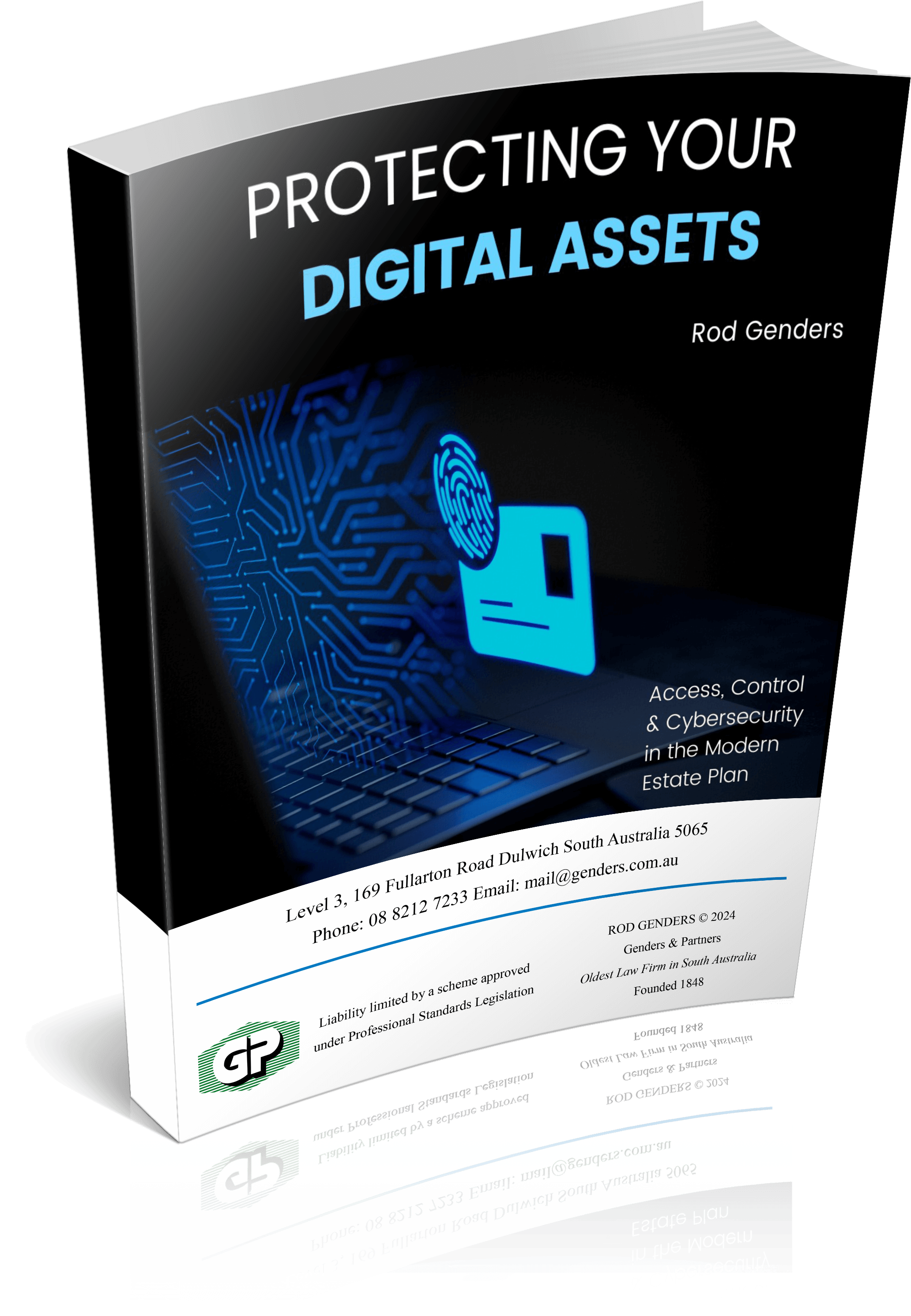
A cautionary tale.
The ground suddenly shifted beneath my feet. My brother was calling from the hospital emergency room. Our mother had fallen. She’s in pain, and the doctor says the x-ray shows a fracture. The doctor wants to talk to me.
“Your mother,” the doctor tells me, “has broken the top of the thigh bone that joins the hip.”
I tell him I know a little bit about medicine. I know better than to say I’m a lawyer, as it often causes hesitancy in medical professionals. “What exactly is broken?” I ask.
He tells me she has split the head of the femur. She’ll need surgery. I flash back to the broken hip cases I’ve handled over the years. In my mind, I see the X-rays of an artificial hip joint made of metal and plastic.
“No,” he says, “the surgery she needs is a metal rod down the thighbone and pins to the ball of the hip joint. Not as extensive as a hip replacement.”
I think “But she’s 95 years old” but I don’t say it out loud.
“So what are our options?” I ask. The doctor explains that without surgery, my mother will suffer constant pain and never walk again and will be at risk for infection, pneumonia, and pulmonary embolus—lethal clots traveling from her legs to her heart and lungs. The primary benefit of surgery, he tells me, is pain control and with a hope that she’ll stand and walk.
“We have to know,” he says, “Does she want a DNR?” Suddenly, I felt a lump in my throat the size of an egg at the mention of a do-not-resuscitate order. In the space of five seconds, I had to decide whether my mother should live or die.
I flashed back to the dark, cold winter mornings, my mother making porridge for me and my little brother. On her knees zipping up our hooded coats. Walking us to the bus stop. What would mum want, I wondered.
I didn’t know. We never asked.
My wife had been on me for the last two years to talk to my mother about moving to assisted living. She’d placed her own mother in a minimally assisted-living facility the first time her mother fell.
“You and your brother need to step up,” she repeatedly reminded me. “Your mother shouldn’t be living by herself.”
There are different relationships between mothers and daughters and mothers and sons. To me, it seems that daughters are closer to their mothers and share more of their life. They seem better able to talk about real things – or anything for that matter.
I wondered if girls are encouraged by society to talk about their issues, while boys are supposed to suffer in silence, and maybe drown their sorrows in alcohol. I could certainly do with a drink right now.
During the past few years, I occasionally mentioned assisted living to my mum. “Don’t you dare put me in one of those places,” she said in her most belligerent tone. “All they do is sit around a TV and watch game shows. They are God’s waiting room.”
Now I had only a few seconds to decide the fate of the most caring person in my youth, a 95-year-old woman, nearly deaf and cognitively impaired from severe short-term memory loss.
“DNR,” I told the doctor. My brother agreed. The next day, problems multiplied like leaks in a roof.
Dealing with a loved one suffering from dementia or cognitive difficulties complicates medical care. It’s a problem we should have considered years before my mother fell, when there were only claims of items being stolen that we later found were simply misplaced.
The morning of surgery, we explained to my mother at least 10 times that she’d broken her hip. Each time she asked, “I broke my hip?” She couldn’t remember.
Her faulty memory worsened over time. The pain and the medication only worsened things and seemed to speed-up her decline.
Soon after surgery, a social worker told my brother we had to select a rehab faculty. We soon realised that not all rehab facilities are five-star rated; thus beds in the more sought-after centres are in demand. There are waiting lists, and deposits required.
When my dad was alive, my parents carefully maintained the very top level of private health insurance with top extras cover.
Unbeknownst to my brother and I, my mother had gradually reduced the level of her cover over time since dad died. My brother had seen the accounts but didn’t appreciate the difference over time of the increasing coverage gaps.
We placed my mother in a short-term, for-profit rehab facility. Her health insurance limited her stay to 20 days before substantial co-payments kicked in. We had to find a nursing home and hope she’d transition to assisted living.
We were shocked to discover the cost of some of the better options.
We had to make quick decisions without time to examine assisted-living facilities for someone who needed support for “activities of daily living,” such as dressing and bathing.
Independent living in a retirement village wasn’t an option yet due to her physical disabilities following the fall and the surgery. Assisted living wasn’t an option. We were in between rehabilitation/respite and long-term nursing home.
Mum had lived off her savings and Centrelink age-pension for 30 years. More than half of her wealth was tied up in her unit, which meant we now had to sell it in order to afford the buy-in to her next dwelling.
It was a comfortable 2 bedroom unit in a village for the 55-and-older community. But our real estate agent said we needed to spend $25,000–$35,000 in improvements to sell it, as their were health and safety code violations like no working smoke alarm.
The first contractor we asked for an estimate said he couldn’t start for five months because he was short staffed. Turns out, all the contractors we talked to had employee shortages after COVID-19. So we had another time-consuming project with little time to do it.
Aged-care, Centrelink and Medicare applications and forms are challenging at the best of times. Centrelink has a five-year lookback policy for transfers of wealth.
My mother’s only other asset, besides some jewellery, had been her car, which my brother had already sold for her 3 years ago. If she exhausted her assets, my brother would have to track down the deposit to her bank account to prove receipt of the cash for the car.
We also had to be ready in case our mum outlived her assets. If she ran out of money, my brother and I agreed that we would be responsible to pay as much as $70,000.
Looking back, there was an episode some years ago that should have prompted our efforts to get mum’s affairs in order and to begin the process to move her to assisted living: I got a call from my brother to meet him at my mother’s unit. I could hear the smoke detector blaring over his cell phone.
That’s when my mother claimed a terrorist had broken in and placed a cooking mitten in the oven so that when she turned on the oven, the mitten would catch fire and incinerate the place.
We couldn’t find signs of forced entry, and the terrorist, thankfully, took nothing of value. We should have begun talking about assisted living for someone living alone, and we should have reviewed her options.
Another missed opportunity occurred about three years before she fell. Her church group visited a congregant who’d recently gone to an assisted-living residence.
The lady was lonely and resented her son for forcing her to live in this “depressing place.” It left a negative impression with mum. We should have found someone my mother knew or an acquaintance who enjoyed her new friends and assisted-living arrangements and suggested we stop by and visit that friend on a Sunday afternoon.
We also now realised we should have organised an enduring power of attorney and advance care directive for her. When it was time for hospice care, there were so many legal documents.
There were a couple of instances when it wasn’t clear whether my brother and I had the lawful authority to sign a contract for her.
Our mother had been relatively healthy into her late 80s. But we should have investigated her health care options when she could still assist us with her preferences and wishes, instead of waiting until her health was poor, and everything had to be done in a blind panic.
We realised, belatedly, that as a parent or loved one’s memory fades, the cost of skilled nursing care escalates. At the first sign of cognitive decline, we should have reviewed Medicare gap coverages and private health insurance plans and know the total assets available and what else would be necessary.
I wish we had prepared a proper and comprehensive plan for her healthcare, accommodation and her legal and financial affairs.
This story is true for someone – probably lots of someones, but not for me. It is apocryphal.
Preparing for retirement needs to start early to have maximum benefits. As part of this process, it’s a very good idea to look at putting all your affairs in order and explore your estate planning options, by contacting a specialist lawyer who is experienced in estate planning in South Australia.
Founded in 1848, Genders & Partners is the oldest law firm in South Australia. They choose to specialise in just a few areas of law closest to most families, so that they can provide the legal services that matter most to you and your family.
Their experienced estate planning team can discuss many estate planning tools and techniques including:
- helping you to identify, understand and manage risks in your legal and financial affairs;
- protect your digital assets;
- creation of protective trusts;
- titling of assets for joint ownership;
- consideration of insurance options.
Choosing the right estate planning lawyers can make a huge difference in ensuring proper distribution of your assets after death, minimising or avoiding any legal issues that may arise, and protecting your hard-earned assets.
Most importantly, it helps save your family all the trouble, as well as thousands of dollars in legal fees and taxes, after your death.
Download their free eBook: “7 things you must know before you make your Will” here.
Genders and Partners is the oldest law firm in South Australia, established 1848. Contact them to learn how to protect yourself, your family and your assets through modern integrated estate planning solutions, by visiting our website today and schedule a free no obligation telephone consultation to find out how they can help you and yours.
To learn how to protect yourself, your family and your assets, by creating a professionally-made estate plan, claim your FREE 15 minute Telephone Consultation .
PS For a strictly limited time Genders and Partners are giving away for FREE their Digital Assets Protection Pack with the purchase of any Gold Estate Planner package. Find out how to Protect Your Digital Assets here.
Protecting Your Digital Assets

What will happen to your online accounts, profiles, data, subscriptions and memberships, if you die or become incapacitated?
With data breaches, elder abuse and digitalisation all on the increase, read these important insights from senior Australian specialist lawyer Rod Genders to help protect yourself, your family and your assets.







